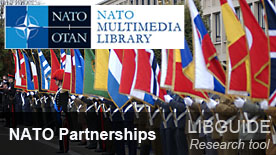These countries develop cooperation with NATO in areas of mutual interest, including emerging security challenges, and some contribute actively to NATO operations either militarily or in some other way. Individual global partners choose the areas where they wish to engage with NATO, as well as the extent of this cooperation, in a spirit of mutual benefit and reciprocity.
Over recent years, NATO has developed bilateral relations with each of these countries. Global partners now have the same access to partnership activities as other partners. Activities range from joint exercises and joint operations, to strategic-level training, and information, intelligence as well as technology exchange.
The importance of reaching out to nations and organizations across the across the globe was underlined in the Strategic Concept adopted at the November 2010 Lisbon Summit. At Lisbon, Allied leaders declared their intention, as part of a focused effort to reform NATO’s partnerships policy, to better engage with partners across the globe which contribute significantly to security. Following up on the Lisbon decisions, Allied foreign ministers approved a new partnerships policy at their meeting in Berlin in April 2011.
In line with the new policy, all partners will be treated in the same way offering them the same basis of cooperation and dialogue. Moreover, are now more frequent opportunities for meetings in flexible formats, bringing together NATO and partners from across and beyond existing partnership frameworks, as well as other countries with which NATO may have no bilateral programme of cooperation. One such meeting was held at NATO Headquarters on September 2011 to discuss counter-piracy, involving representatives from 47 nations and organizations involved in counter-piracy operations in the Indian Ocean. Other similar meetings have taken place to consult partners on different issues, such as partnership or countering narcotics in Afghanistan.



